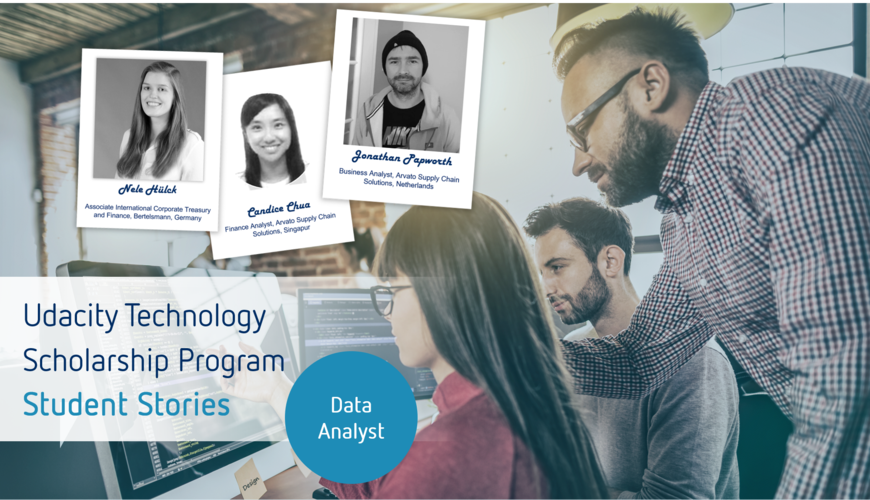Last September, Bertelsmann launched the Udacity Technology Scholarship Program, a new, comprehensive scholarship initiative. Upon completion of the initial Challenge Course, the top ten percent of graduates received a scholarship for a full-fledged Udacity Nanodegree program in the fields of cloud, data or artificial intelligence. Employees of all Bertelsmann companies were also eligible to qualify for one of the three Nanodegree programs as part of the professional development initiative. In an interview with BENET, some of them talk about their experience with the “Udacity Technology Scholarship Program".
In this second installment, Nele Hülck of Bertelsmann in Germany, Jonathan Papworth of Arvato Supply Chain Solutions in the Netherlands, and Candice Chua of Arvato Supply Chain Solutions in Singapore talk, among other things, about what they learned in the “Data Analyst” Nanodegree program, how they can apply the acquired knowledge in their jobs, and what they especially enjoyed about the course.
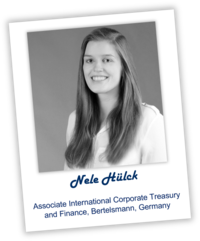 BENET: Overall, how was your experience with the Udacity Technology Scholarship Program?
BENET: Overall, how was your experience with the Udacity Technology Scholarship Program?
Nele Hülck: The Udacity Technology Scholarship Program is a great opportunity to independently pursue one’s development and develop one's skills. It is a good way to try your hand at programming. Even though you might not be able to apply it in your current job, there will certainly be an opportunity in the future to show what you have learned.
Candice Chua: It was a really good and nice opportunity to study part-time - my university day were really long ago. Being able to learn something new is a privilege. It is very encouraging that Bertelsmann supports and promotes lifelong learning and the path to digital transformation.
BENET: How did the start of the Nanodegree program go for you?
Candice Chua: Like many others, I was very excited about the starting phase in particular, because I didn't really know what to expect. What I did know, however, was that it would require a great deal of time and commitment to complete the Nanodegree.
Nele Hülck: I personally found the start was very well organized. In addition to the kick-off event, you could exchange ideas with your fellow scholarship holders about the content and procedures.
Jonathan Papworth: It felt great to begin a new chapter and seize the opportunity to study and learn new skills for future career opportunities. On the first day, the Slack exchange platform was buzzing with student messages and activities, and everyone was eagerly waiting for the course to officially start.
 BENET: What did you learn in the "Data Analyst" Nanodegree program?
BENET: What did you learn in the "Data Analyst" Nanodegree program?
Jonathan Papworth: In all the projects, we learned how to gather, assess, clean, and analyze data and share the findings. We used the Python programming language, which can be used to obtain insightful statistical information and perform calculations to find correlations between data.
Nele Hülck: The Nanodegree is divided into four thematic blocks, each with about six sub-items. The "Introduction to Data Analysis" block presents the tools necessary for the program. In the "Practical Statistics” block, the basics of statistics are reviewed. The "Data Wrangling" block deals with the programming and preparation of data, and so does the "Data Visualization" block.
Candice Chua: In some projects we also worked with the Jupyter Notebook application. This was a useful introduction to the world of coding for me.
BENET: What do you think makes the Nanodegree special, and what are the challenges for you personally?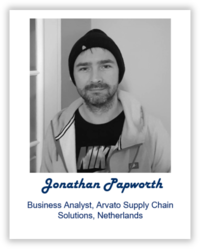
Jonathan Papworth: The best thing about the course is learning in the Udacity community. It allows me to make contacts and work with people to find different approaches to solving a problem. A big challenge for me was learning how to code in order to gain insights. But the new knowledge has shown me even more options in the area of data analysis and machine learning, or data science, as these are closely related.
Nele Hülck: The Nanodegree is an excellent introduction to the world of programming. These days, data processing and the preparation of data are becoming increasingly important. The Nanodegree gives you an opportunity to further educate yourself in this field and to master digital challenges in your everyday working life. The program enables me to carry out my tasks, which previously ran on Excel, more efficiently using programs I write myself. The hand-in assignments are actually the biggest challenge, because they ask you to apply all the knowledge from the preceding unit in a single assignment.
Candice Chua: To me, the Nanodegree is especially attractive and helpful for working adults because of the projects. They gives application and practicality to the theory video lessons by the Udacity course trainers. I also learned the Anaconda and Python coding languages, which were new to me.
BENET: How do you manage to complete the Nanodegree program alongside your job?
Jonathan Papworth: My recommendation: Learn every day, even if it’s only for 30 minutes – those 30 minutes can easily turn into longer study sessions. Study in a space where there are distractions from family, friends, or the TV. Put your phone on silent or turn it off and put it out of reach. Be sure to keep a glass of water nearby. And do take breaks during your sessions to reflect on what you've learned.
Candice Chua: I prioritized my studying on weekends, and made it a point to complete the Nanodegree as quickly as possible. With focus and this kind of time management, I managed to complete the program.
Nele Hülck: I mostly work on the Nanodegree program mainly in the evenings and on weekends. The success of having the right result appear after a long, self-written code, motivates me to keep going. The program can easily be completed alongside a job - but you should plan to commit an average of ten hours per week. If you invest more time during the first few weeks, you can complete the program in less than six months.
BENET: How are you able to use the knowledge from the Nanodegree program in your everyday work?
Nele Hülck: In my current position, the Nanodegree can help me to automate processes. I am thinking especially of reporting or some background processes in existing programs.
Jonathan Papworth: I can apply this knowledge in many areas of my job, for example in reviewing and visualizing datasets.
About the Udacity Technology Scholarship Program
Over a period of three years, Bertelsmann is funding 50,000 tech scholarships on the Udacity online education platform (see BENET report). Each year, the initiative awards 15,000 scholarships for the “Challenge Course” in the fields of Cloud, Data and AI, followed by 1,600 scholarships for the Nanodegree program.
In the second round of the scholarship initiative, Bertelsmann will offer the Cloud Nanodegree with a focus on the cloud computing provider Azure, the “Predictive Analytics for Business” Nanodegree program, and the “AI Product Manager” program. Applications for these programs will be accepted starting September 15, 2020. The scholarship is aimed equally at people with and without programming or IT experience.
If you would like to be notified about the start of the application phase, please click on the following link to register for an automatic email notification: https://createyourowncareer.de/udacity/reminder (benet)
04.08.2020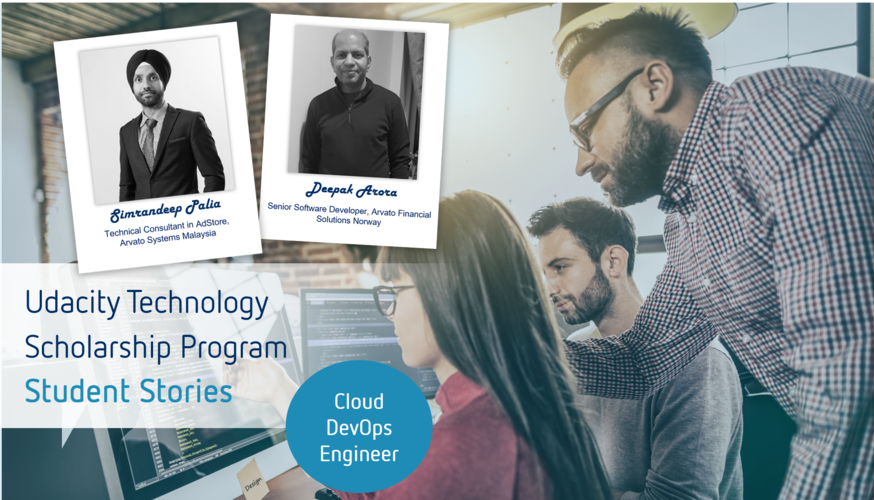
Last September, Bertelsmann launched the Udacity Technology Scholarship Program, a worldwide scholarship initiative. In an interview with BENET, some of them talk about their experience within the Udacity Technology Scholarship Program. In the first part, Simrandeep Palia, Technical Consultant at Arvato Systems in Malaysia, and Deepak Arora, Senior Software Developer at Arvato Financial Solutions in Norway, tell, among other things, what they learned in the “Cloud DevOpsEngineer” Nanodegree program, how they can apply the acquired knowledge in their jobs, and what they especially enjoyed about the course.
BENET: What content does the “Cloud DevOpsEngineer” Nanodegree program cover?
Simrandeep Palia: The Nanodegree deals with the basics of DevOps tools that can be used to automate software deployment, testing and quality control. The program has a lot of interesting content that helps me understand how I can build a pipeline using Jenkins software and the cloud computing provider AWS Services – exciting!
Deepak Arora: The nanodegree course is spread over five phases, and each phase requires you to create and submit a project. This makes for a lot of hands-on learning, with step-by-step instructions for completing the projects to help you gain experience. The program is full of videos and texts that explain the content very well.
BENET: How does the Nanodegree differ from the preceding Challenge Course?
Simrandeep Palia: The “Challenge Course” gives an overview and a bit of in-depth knowledge about the workflow. In the Nanodegree program I now have the opportunity to really understand many of the things we have learned before. To give an example, in the Challenge Course I get to fly on a plane, whereas how exactly the plane flies - understanding its engines, wings, autopilot, etc. – is taught in the Nanodegree.
BENET: What do you like about the Nanodegree, and what are the challenges for you? 
Deepak Arora: I like the well-organized structure of the course. Also, the pace of the program and the community of course-mates all learning at the same time. And the mentors also have a very good knowledge of the subject matter.
Simrandeep Palia: I personally like the content and the realistic examples that the mentors use for us. I like how the mentor takes us to a very detailed level to make sure that when the quiz comes, we will be able to answer the questions in all possible ways. One challenge is the time constraint, I generally spend my weekends doing the learning for the Nanodegree program, so sometimes I missed a deadline. I submitted one of the project on its last day of deadline. I think it should be flexible.
BENET: How are you able to use the knowledge from the Nanodegree program in your everyday work?
Deepak Arora: We are gradually shifting our systems to the Cloud and using the latest technologies for cloud-based systems and services. This nanodegree is a very good start and gives me confidence to venture into the cloud shift.
Simrandeep Palia: Being a developer, I sometimes encountered questions like “why did a pipeline fail here,” or “why do we use a Powershell script here”? The knowledge gained in this program certainly helps me to better find answers to and resolve many questions that I face in my everyday work.
BENET: How do you manage to complete the Nanodegree program alongside your job?
Deepak Arora: The course work and projects require extra time to complete after work. I had to spend extra hours on it in the evenings or sometimes on the weekend. But the way the course is presented and the pace of the program keeps you engaged and motivated. And my team in the office was supportive of my learning and completing it.
Simrandeep Palia: It’s quite challenging to complete the program while also working your job. I literally submitted one of the Nanodegree projects on the last possible day of submission. I learned that working on it only on weekends isn’t enough. It’s better to spend a few hours every single day.
 BENET: How did you experience the Udacity Technology Scholarship in general?
BENET: How did you experience the Udacity Technology Scholarship in general?
Simrandeep Palia: The scholarship program is very helpful. I especially liked the random quizzes and questions that were asked in the middle of the lessons, and being able to communicate with other participants on Slack. In the videos, some topics were split into several short films, which helped me to understand the different steps much better than having to watch one long video.
Deepak Arora: I have done lots of courses in my IT career, and I especially liked the structure and content of this program. It’s a very nice mode of learning.
About the Udacity Technology Scholarship Program
Over a period of three years, Bertelsmann is funding 50,000 tech scholarships on the Udacity online education platform. Each year, the initiative awards 15,000 scholarships for the “Challenge Course” in the fields of Cloud, Data and AI, followed by 1,600 scholarships for the Nanodegree program.
In the second round of the scholarship initiative, Bertelsmann will offer the Cloud Nanodegree with a focus on the cloud computing provider Azure, the “Predictive Analytics for Business” Nanodegree program, and the “AI Product Manager” program. Applications for these programs will be accepted starting September 15, 2020. The scholarship is aimed equally at people with and without programming or IT experience.
Would you like to be notified when the application phase starts? Register for an automatic e-mail notification.
31.08.2020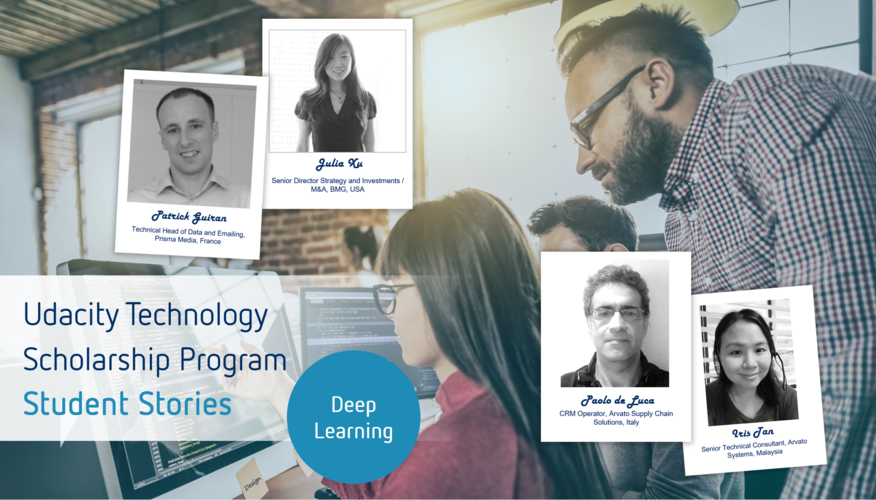
Last September, Bertelsmann launched the Udacity Technology Scholarship Program, a new, comprehensive scholarship initiative. Upon completion of the initial Challenge Course, the top ten percent of graduates received a scholarship for a full-fledged Udacity Nanodegree program in the fields of cloud, data or artificial intelligence. Employees of all Bertelsmann companies were also eligible to qualify for one of the three Nanodegree programs as part of the professional development initiative. In an interview with BENET, some of them talk about their experience with the “Udacity Technology Scholarship Program.
In the third and final part of our series, Julia Xu, Senior Director Strategy and Investments/M&A at BMG in the U.S., Patrick Guiran, Technical Head of Data and Emailing at Prisma Media in France, Iris Tan, Senior Technical Consultant in the Microsoft Business Unit at Arvato Systems in Malaysia, and Paolo de Luca, CRM Operator at Arvato Supply Chain Solutions in Italy talk, among other things, about what they learned in the “Deep Learning” Nanodegree program, how they can apply the acquired knowledge in their jobs, and what they especially enjoyed about the course.
BENET: Please describe your experience with the Udacity Technology Scholarship Program for us.
Julia Xu: The scholarship was a very rewarding experience for me. Beyond the knowledge gained, it also provided me with an opportunity to engage and connect with like-minded individuals.
Paolo de Luca: It was quite challenging. I worked on projects for at least an hour a day. With this constancy I was able to understand what we have been taught. It wasn’t always easy, but I managed to overcome the difficulties with the commitment and help of the other participants and mentors.
Iris Tan: The quality of the course is very good. All of the tutors in the course are very professional and able to explain the syllabus in a clear and easy-to-follow way. I liked that they also provided additional resources for us in many of the lessons. And the tests during the course help to check whether we have really understood the course.
BENET: Please describe your experience with the Udacity Technology Scholarship Program for us.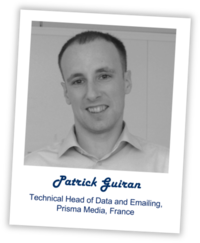
Patrick Guiran: The Nanodegree is about machine learning and artificial intelligence. Among other things we learned to predict events based on historical data or to automatically detect elements in pictures and videos.
Iris Tan: In this Nanodegree we learned about different kinds of artificial neural networks and used them to perform tasks like classification, prediction, feature extraction, and generating new data from a training set. During the course, we learned the basics of deep learning, and towards the end how to deploy an artificial neural network (ANN) on the AWS Sagemaker platform.
Paolo de Luca: The Nanodegree program explores the various techniques used in artificial intelligence. In the field of neural networks, for example, we worked on a bike-sharing prediction model. Based on data from previous years, we developed models that predict how many people would rent a bike on a given day. After dealing with the subject of Artificial Neural Networks, we tackled the subject of Convolutional Neural Networks via image recognition, for example using images of different dog breeds. We also dealt with Recurrent Neural Networks and Generative Adversarial Networks as well as Sentiment Analysis. The latter was about recognizing the sentiment of a film review, i.e. whether it was positive or negative towards the movie, and then applying this model via the provider AWS on any device as a HTML file.
BENET: What did you especially like about the Nanodegree program, and what was the challenge for you personally? 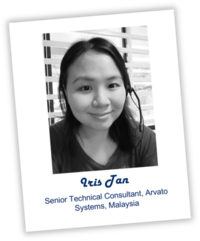
Paolo de Luca: I especially liked the objectives of the proposed projects because they were completely new and original compared to classic programming courses. This motivated me to continue the course. The challenge for me was to understand these programs to be able to modify them and adapt them to my ideas to obtain new results.
Iris Tan: As a mother of two children, it’s difficult for me to find time to study. But the Nanodegree gave me the chance to learn at my own pace. I like the Udacity scheduler planner feature, which allows us to plan our study plan our study and how many hours we spend on the course on which days.
Julia Xu: I really enjoy the coding projects, as they provide hands-on experience applying the concepts learned in the classroom and allow me to dust off my coding skills. The fact that our code was reviewed by industry experts gave us invaluable feedback on how to improve. Balancing the course with my job was a good lesson in time management.
BENET: How did you manage to complete the Nanodegree program alongside your job?
Julia Xu: I used the time after work to study, which often resulted in late-night coding sessions.
Patrick Guiran: The secret is: Have a schedule and stick to it. I mostly worked on the Nanodegree in the evenings, after work and also after spending time with my family. This was the best way for me to study undisturbed.
Paolo de Luca: Before the lockdown, I had planned to study in the evenings after 10 p.m., after my children had gone to bed. During the lockdown, I changed my schedule and studied early in the morning. As I work part-time, I was able to manage it all well.
Iris Tan: I spent one or two hours each day on the Nanodegree before going to bed. My husband took care of the kids in the evening so I could concentrate on my studies.
BENET: How are you able to use the knowledge from the Nanodegree program in your everyday work? 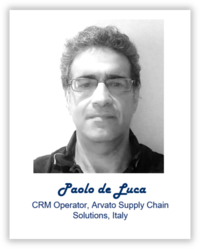
Paolo de Luca: The model that I could make good use of in my job is what we learned from the bike-sharing example. I’d like to deepen my knowledge of it and study projects about e-commerce.
Patrick Guiran: During the Udacity Technology Scholarship Program, you are always learning new skills in the context of your everyday work. This makes it very easy to find opportunities to apply them in your own work.
Iris Tan: Machine learning is getting more and more relevant to our day-to-day life. With the knowledge gained from the Deep-Learning Nanodegree program I am able to create applications or machines that help to simplify and automate complex tasks that used to require human interaction.
Julia Xu: I work with a lot of startups, connecting innovative technology with our business divisions. Artificial intelligence is an increasingly hot topic in the tech community. The knowledge gained through this Nanodegree helps me engage with, vet, and understand the companies I work with on a deeper level. Understanding artificial intelligence in greater detail also helps me think about the ways in which a technology can impact and improve our business.
About the Udacity Technology Scholarship Program
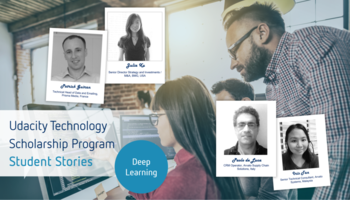 Over a period of three years, Bertelsmann is funding 50,000 tech scholarships on the Udacity online education platform (see BENET report). Each year, the initiative awards 15,000 scholarships for the “Challenge Course” in the fields of Cloud, Data and AI, followed by 1,600 scholarships for the Nanodegree program.
Over a period of three years, Bertelsmann is funding 50,000 tech scholarships on the Udacity online education platform (see BENET report). Each year, the initiative awards 15,000 scholarships for the “Challenge Course” in the fields of Cloud, Data and AI, followed by 1,600 scholarships for the Nanodegree program.
In the second round of the scholarship initiative, Bertelsmann will offer the Cloud Nanodegree with a focus on the cloud computing provider Azure, the “Predictive Analytics for Business” Nanodegree program, and the “AI Product Manager” program. Applications for these programs will be accepted starting September 15, 2020. The scholarship is aimed equally at people with and without programming or IT experience.
If you would like to be notified about the start of the application phase, please click on the following link to register for an automatic email notification: https://createyourowncareer.de/udacity/reminder (benet)
